If you've ever found yourself grappling with an invalid invoice, you're not alone! Many businesses encounter this frustrating scenario, and it can lead to confusion and financial strain. Addressing the issue promptly and professionally is key to resolving disputes effectively and maintaining positive relationships with your vendors. Let's dive into how to craft the perfect letter template for disputing an invalid invoiceâread on to empower yourself with the right tools!
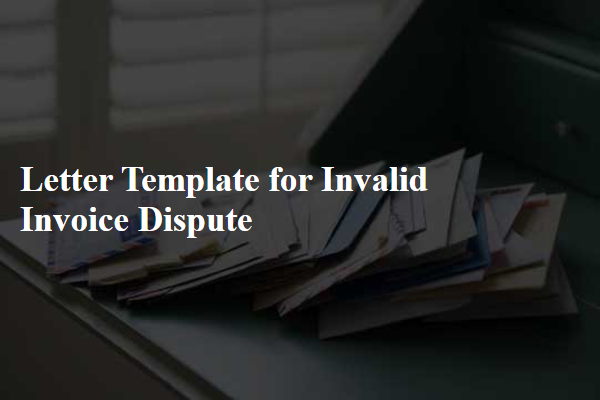
Accurate Invoice Details
An invalid invoice dispute can arise when discrepancies occur between the billed amounts and agreed terms. Invoicing errors, such as incorrect item descriptions or quantities, can lead to confusion in business transactions, particularly involving professional services or product deliveries. For example, an invoice dated September 15, 2023, from a supplier in New York City may incorrectly charge a company $5,000 for five units instead of the agreed quantity of three units at $3,000. Accurate documentation of each invoice is crucial, as details like purchase order numbers and contractual terms can serve as reference points during disputes. Additionally, prompt communication with the supplier can facilitate resolution, avoiding potential delays in service or product delivery caused by payment disputes.
Specific Dispute Reasons
A valid invoice dispute can arise from multiple specific reasons, including billing errors (incorrect amounts or item charges), duplicate charges for the same service or product, and discrepancies in the agreed-upon terms (payment terms not aligned with the contract). Inaccurate or missing details, such as vendor identification numbers or tax identification numbers, can also contribute to disputes. In some cases, services or products not rendered may result in contested invoices, leading to further complications in accounting records. Proper documentation and clear communication are essential in resolving these issues efficiently.
Supporting Documentation
Discrepancies in invoices can create significant financial challenges for businesses. Supporting documentation, such as original contracts (legal agreements outlining terms), purchase orders (requests for goods or services), and delivery receipts (proof of receipt of goods) are crucial in resolving disputes. Invoices should match agreed-upon terms like pricing structures (detailed cost breakdowns) and service timelines (specific delivery dates). Additionally, communication history (emails or letters discussing transactions) can clarify misunderstandings and establish intent. Properly organized supporting documentation ensures a smoother resolution process, protecting rights and promoting transparency in business dealings.
Clear Resolution Request
An invalid invoice dispute can arise from erroneous charges on invoices issued by service providers, such as discrepancies in billed amounts or unapproved costs. Detailed documentation, including the invoice number (e.g., INV123456) and specific line items in question, must accompany the dispute request to facilitate a clear resolution. Providing a timeline of relevant communications with the supplier, such as emails exchanged on October 15, 2023, can support the case. Additionally, referencing company policies regarding billing disputes enhances the argument, as clear guidelines often dictate acceptable charges. A prompt resolution is necessary to maintain healthy cash flow and foster positive supplier relationships.
Contact Information and Deadline
An invalid invoice dispute can disrupt financial operations in businesses, highlighting the importance of accurate billing processes. Clear contact information (including email, phone number, and physical address) is essential for efficient communication between parties involved. Timely resolution is crucial; typically, deadlines for responding to such disputes are set at 30 days from the date of invoice receipt. Missing this timeline can result in automatic acceptance of the charges, complicating financial reconciliation. Businesses often utilize formal documentation, including dispute forms and supporting evidence, to bolster their claims. Keeping meticulous records can aid in resolving discrepancies quickly, thereby preserving business relationships and ensuring smooth transaction flows.

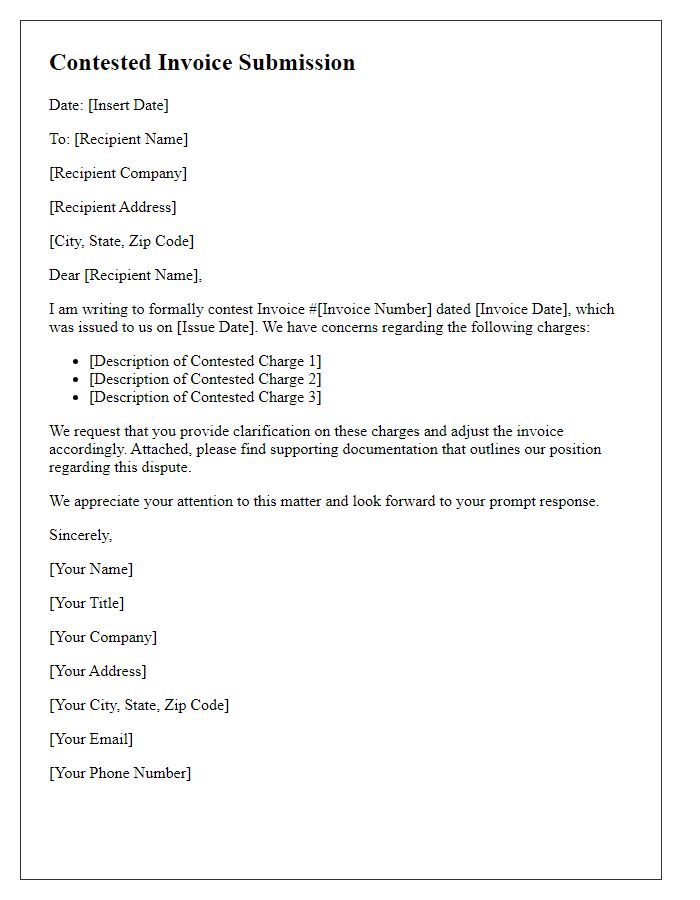
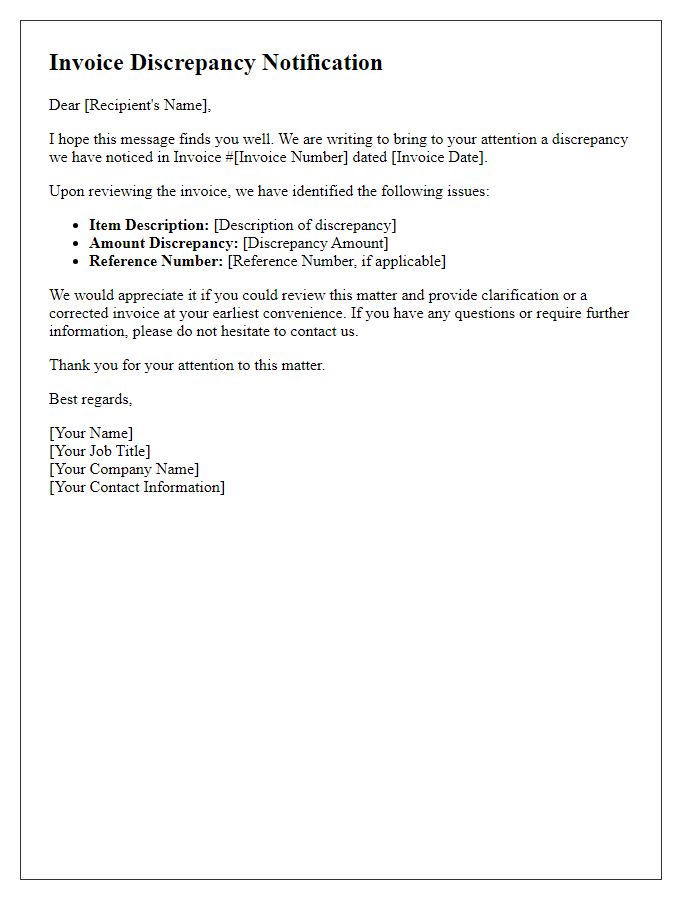
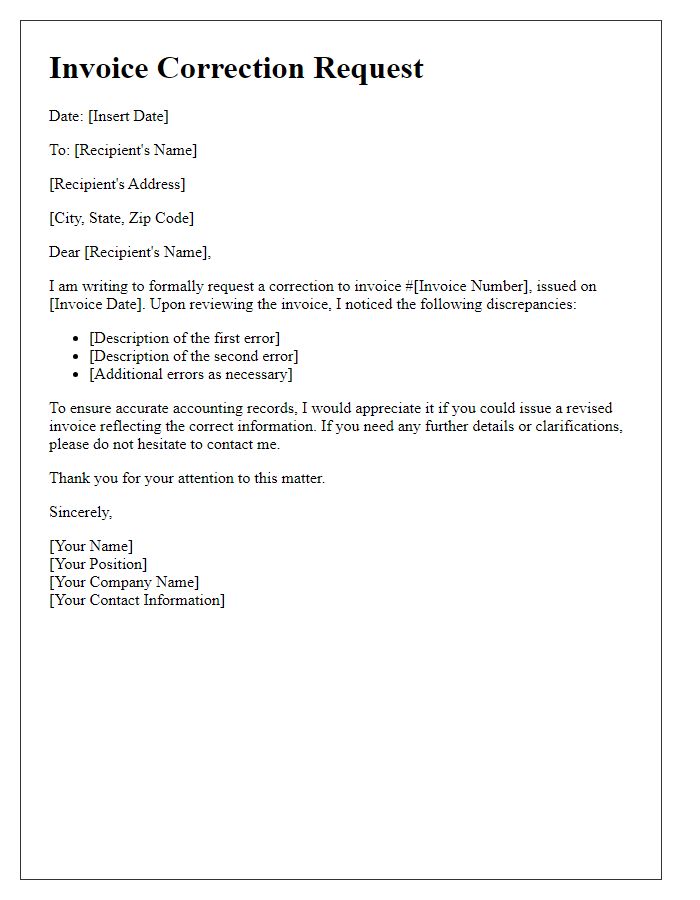
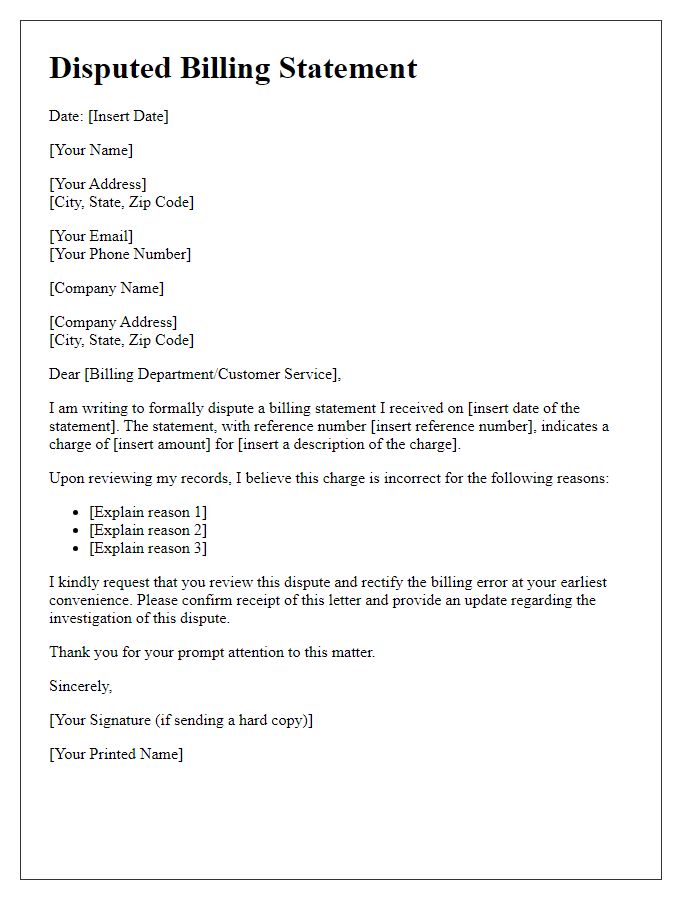
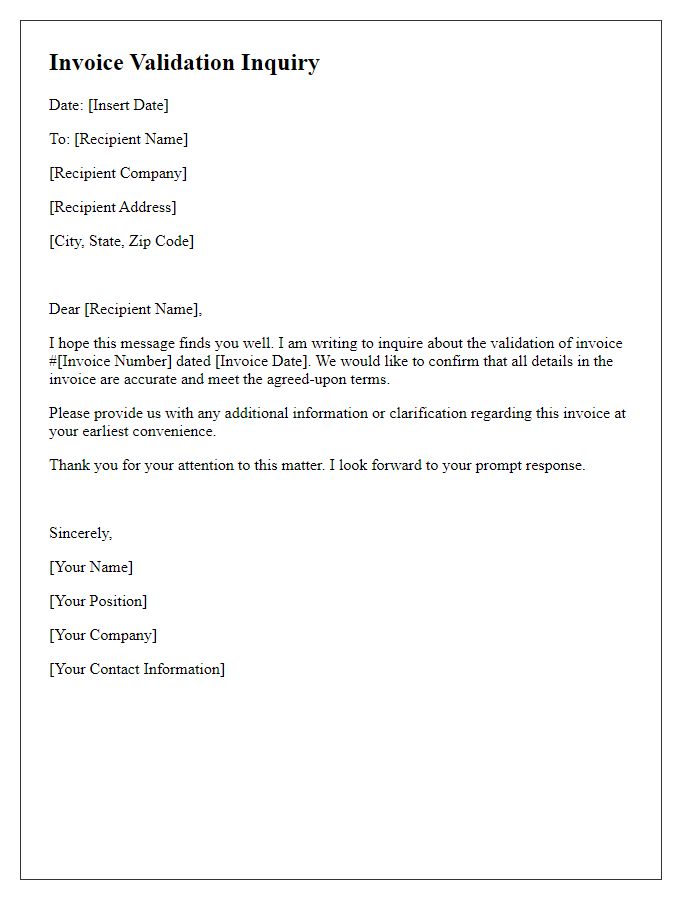
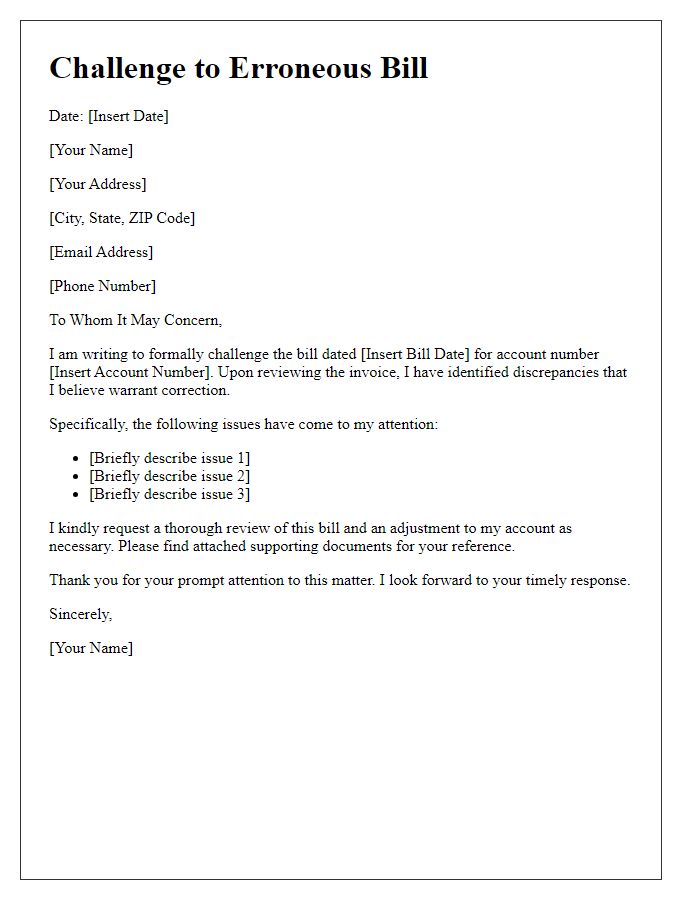
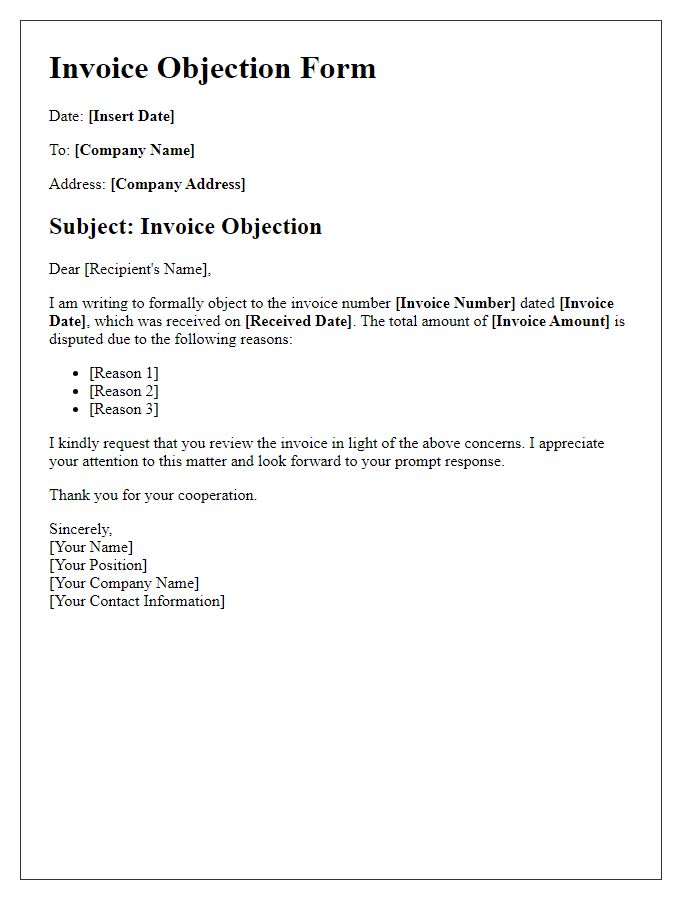
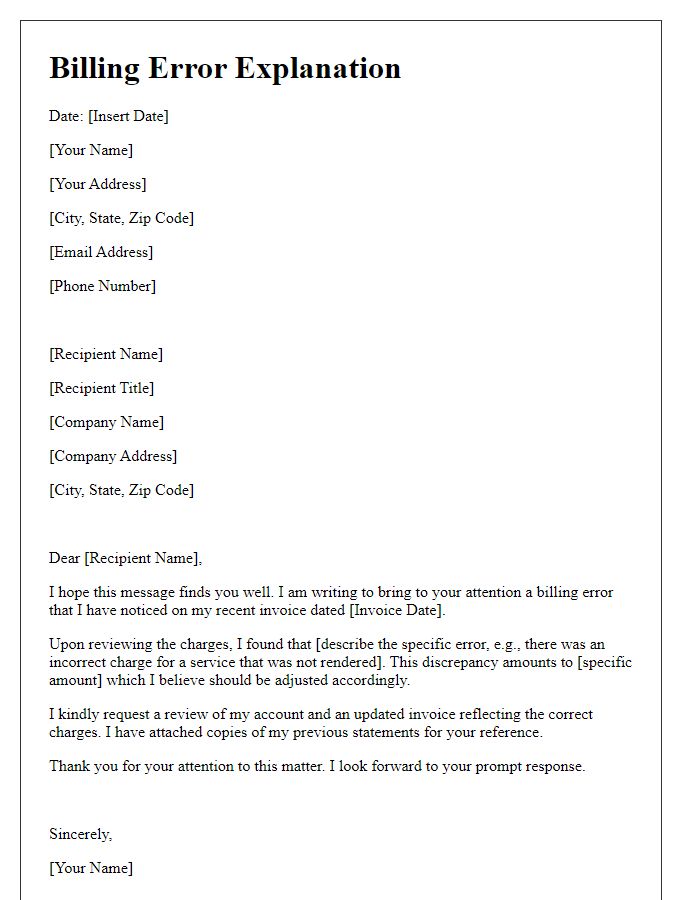
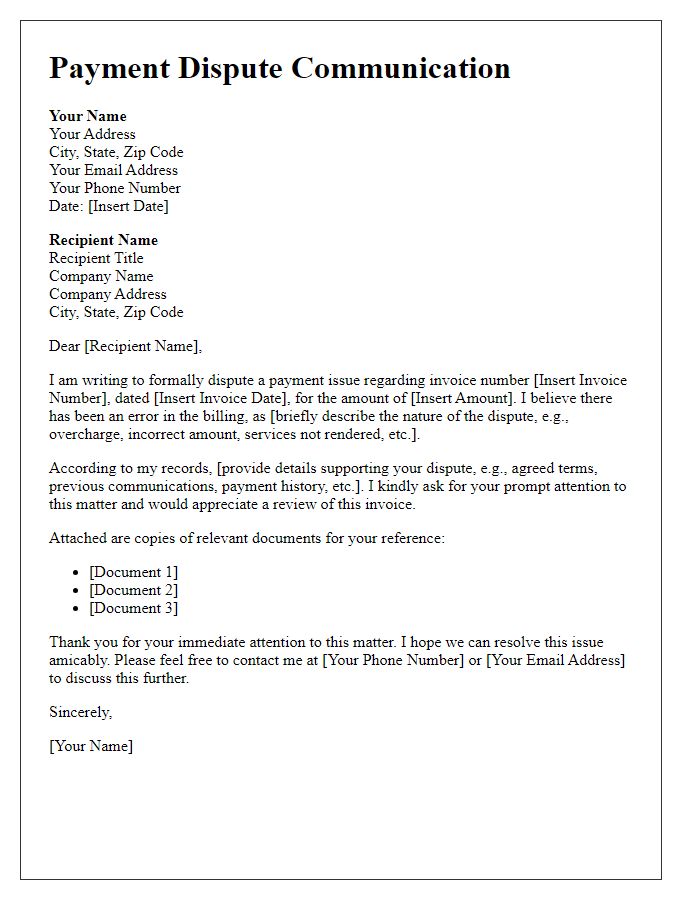
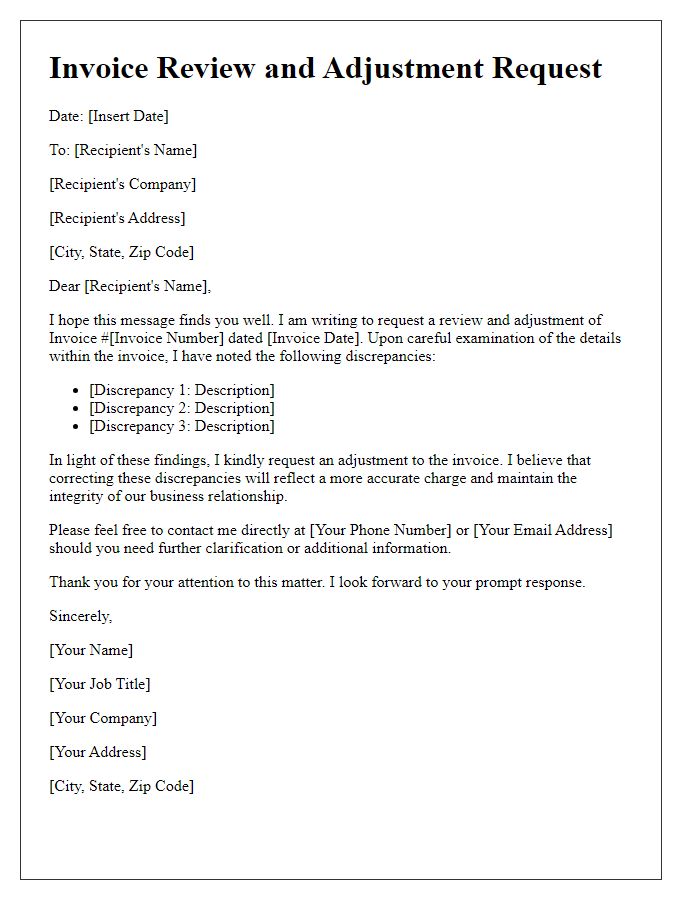

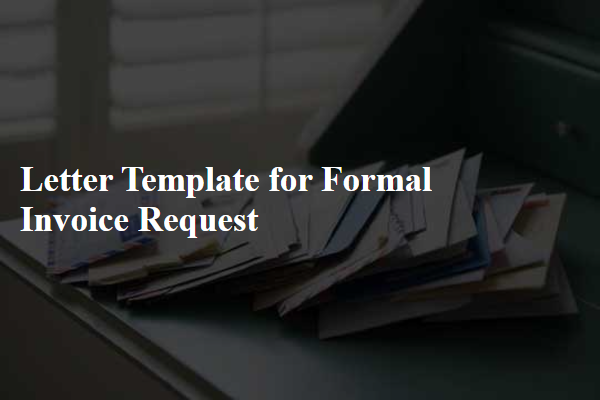
Comments